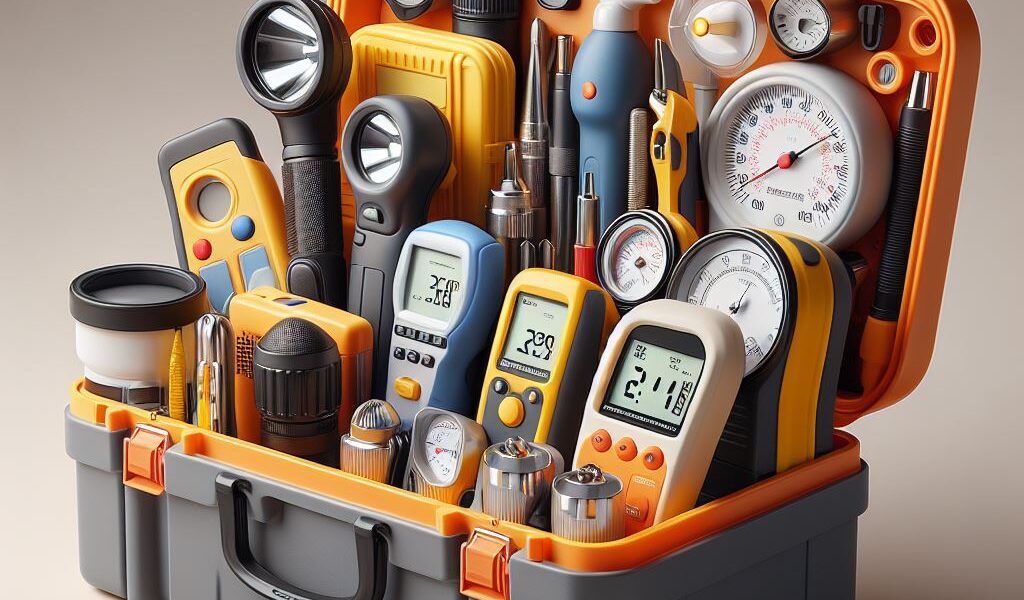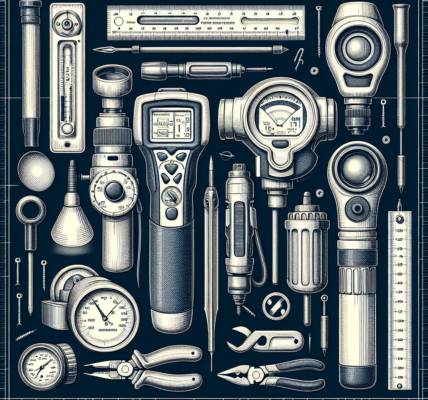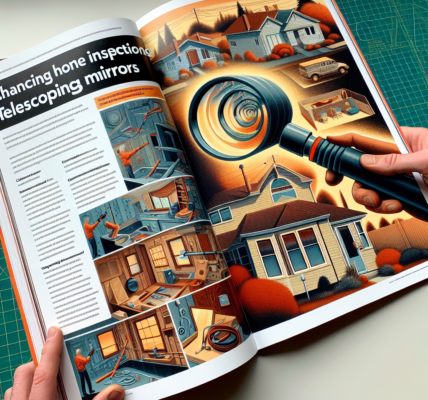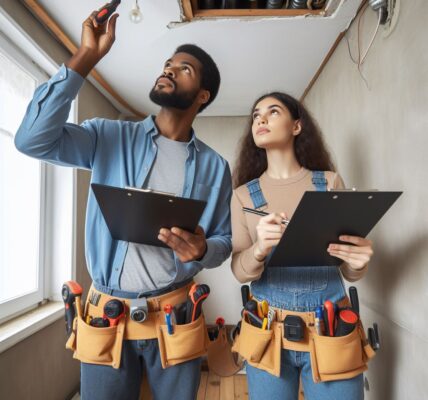Essential Home Inspection Supplies for Beginners
When it comes to conducting a thorough home inspection, having the right supplies is crucial. Whether you are a beginner or an experienced inspector, having the necessary tools at your disposal will ensure that you can accurately assess the condition of a property. In this article, we will discuss some of the essential home inspection supplies that every beginner should have.
One of the most important tools for a home inspector is a flashlight. A good flashlight will allow you to see into dark and hard-to-reach areas, such as crawl spaces and attics. It is essential to have a flashlight with a strong beam and long battery life to ensure that you can properly inspect all areas of a property.
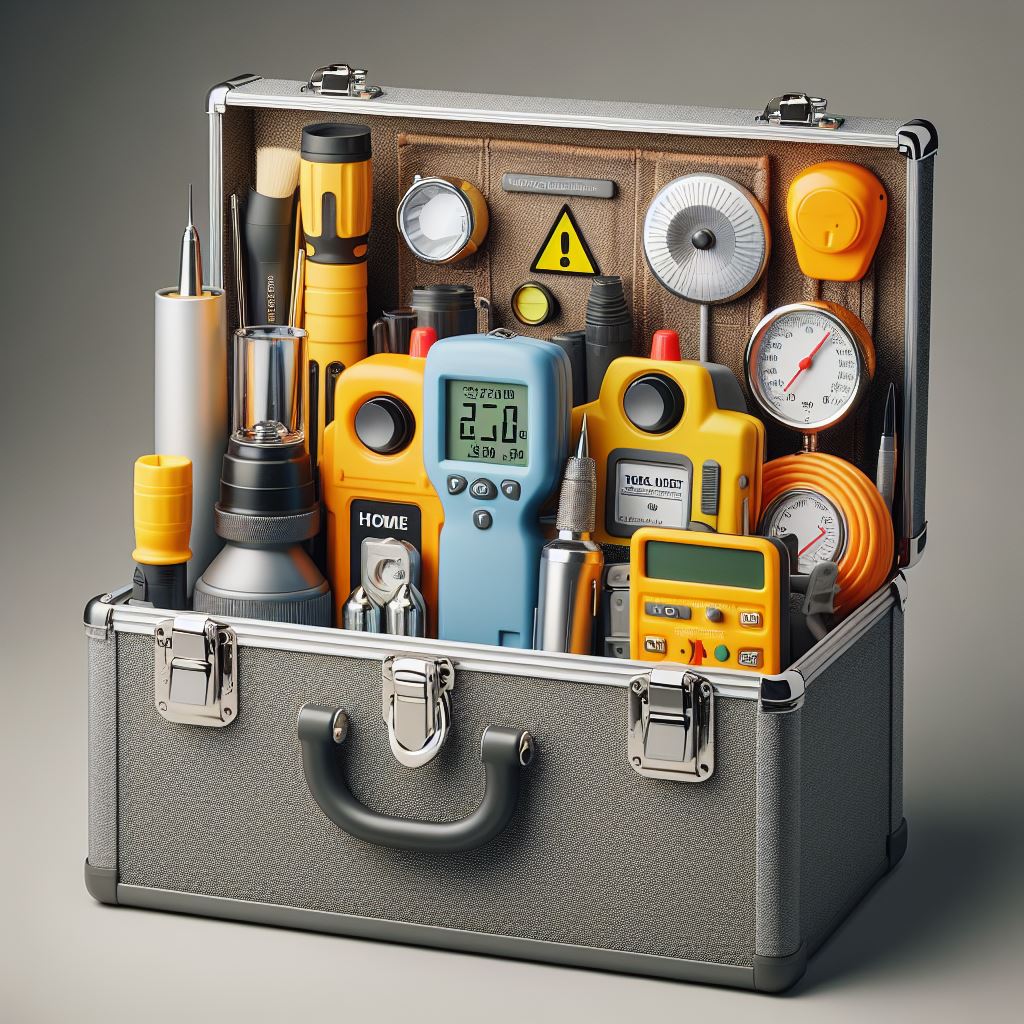
Another essential supply for a home inspector is a moisture meter. This tool is used to detect the presence of moisture in various materials, such as wood and drywall. Moisture can indicate the presence of leaks or water damage, which can be costly to repair. By using a moisture meter, you can identify potential issues before they become major problems.
A digital camera is also an essential tool for a home inspector. Taking photos of any defects or areas of concern can provide valuable documentation for both the inspector and the homeowner. These photos can be used to support any findings or recommendations made during the inspection process. Additionally, having a camera allows you to review the images later, ensuring that you did not miss any important details during the inspection.
A ladder is another essential supply for a home inspector. Many areas of a property, such as roofs and high ceilings, are not easily accessible without a ladder. Having a sturdy and reliable ladder will allow you to safely access these areas and thoroughly inspect them for any issues. It is important to choose a ladder that is the appropriate height and weight capacity for your needs.
In addition to these tools, a home inspector should also have a comprehensive set of hand tools. This includes items such as screwdrivers, pliers, and a tape measure. These tools are necessary for inspecting various components of a property, such as electrical outlets, plumbing fixtures, and HVAC systems. Having a well-stocked toolbox will ensure that you are prepared for any situation that may arise during an inspection.
Lastly, it is important for a home inspector to have a reliable and accurate measuring device. This can include a laser measure or a traditional tape measure. Measuring devices are essential for accurately assessing the dimensions of rooms, windows, and other structural elements. This information is crucial for creating accurate reports and determining the overall condition of a property.
In conclusion, having the right supplies is essential for conducting a thorough home inspection. From flashlights and moisture meters to cameras and ladders, each tool plays a crucial role in assessing the condition of a property. By investing in these essential supplies, beginners can ensure that they are well-equipped to provide accurate and comprehensive inspections. So, if you are considering a career in home inspection, make sure to stock up on these essential supplies to set yourself up for success.
Top 5 Must-Have Tools for Professional Home Inspectors
A professional home inspector relies on a variety of tools to perform their job effectively. These tools are essential for identifying potential issues and ensuring the safety and functionality of a home. In this article, we will discuss the top five must-have tools for professional home inspectors.
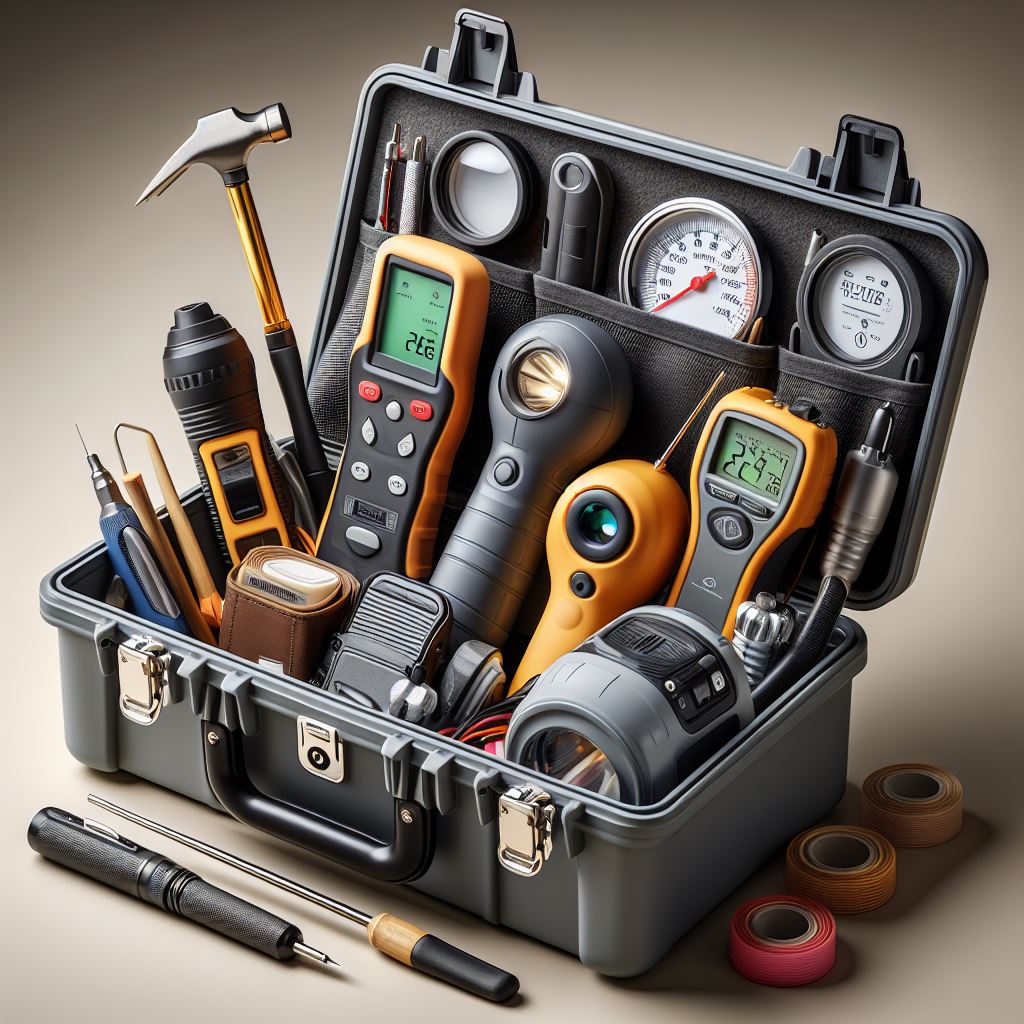
First and foremost, a moisture meter is an indispensable tool for any home inspector. This device measures the moisture content in various materials, such as wood, drywall, and concrete. By detecting excessive moisture, a home inspector can identify potential water damage, mold growth, or structural issues. This tool is particularly useful in areas prone to high humidity or water leaks, such as basements and bathrooms.
Another crucial tool for home inspectors is a thermal imaging camera. This device uses infrared technology to detect temperature variations in a home. By capturing images that display heat patterns, a thermal imaging camera can reveal hidden issues, such as insulation gaps, electrical problems, or plumbing leaks. This tool is especially valuable for identifying energy inefficiencies and potential safety hazards.
A good quality flashlight is an essential tool for any home inspector. It allows them to illuminate dark areas, such as crawl spaces, attics, or basements, where potential issues may be lurking. A flashlight with adjustable brightness and a long battery life is ideal for ensuring visibility during inspections. Additionally, a flashlight with a built-in magnet or hook can be handy for hands-free operation.
A digital camera is another must-have tool for professional home inspectors. It enables them to document their findings visually and provide evidence to clients. High-resolution images can capture details that may be missed during the inspection or serve as a reference for future assessments. A camera with video recording capabilities can also be beneficial for capturing live footage of issues that may require further investigation.
Lastly, a comprehensive toolkit is essential for a home inspector to perform their job effectively. This toolkit should include a variety of hand tools, such as screwdrivers, pliers, and wrenches, to handle different tasks. Additionally, specialized tools like a circuit tester, outlet tester, or voltage detector are crucial for assessing electrical systems safely. A toolkit with a sturdy carrying case or bag ensures that all tools are organized and easily accessible during inspections.
In conclusion, professional home inspectors rely on a range of tools to carry out their job effectively. The top five must-have tools for home inspectors include a moisture meter, thermal imaging camera, flashlight, digital camera, and a comprehensive toolkit. These tools enable inspectors to identify potential issues, document findings, and ensure the safety and functionality of a home. By investing in these essential tools, home inspectors can provide thorough and reliable assessments to their clients.
How to Choose the Right Home Inspection Supplies for Your Business
Home inspections are an essential part of the real estate industry. Whether you are a seasoned home inspector or just starting out in the business, having the right home inspection supplies is crucial. These supplies not only help you perform your job efficiently but also ensure that you provide accurate and reliable information to your clients. In this article, we will discuss how to choose the right home inspection supplies for your business.
First and foremost, it is important to have a comprehensive toolkit that includes all the necessary tools for conducting a thorough home inspection. This toolkit should include items such as a flashlight, a moisture meter, a digital camera, a tape measure, a ladder, and a screwdriver set. These tools will enable you to inspect various aspects of a home, from electrical systems to plumbing and structural components. It is essential to invest in high-quality tools that are durable and reliable, as they will be used extensively in your line of work.
In addition to the basic toolkit, there are several specialized tools that can enhance your home inspection process. One such tool is a thermal imaging camera, which can detect hidden issues such as insulation gaps or water leaks. This tool can be particularly useful in identifying energy inefficiencies and potential moisture problems. Another useful tool is a gas leak detector, which can help you identify any gas leaks in a property. These specialized tools can provide valuable insights and help you offer a more comprehensive inspection service to your clients.
Apart from tools, it is also important to have a range of testing equipment to assess the quality of various systems in a home. For instance, a carbon monoxide detector is essential for checking the presence of this deadly gas. A radon testing kit is also crucial, as radon is a radioactive gas that can cause serious health issues. Additionally, having a water testing kit can help you assess the quality of the water supply in a property. These testing equipment items are essential for ensuring the safety and well-being of your clients.
When choosing home inspection supplies, it is important to consider the quality and reliability of the products. Look for reputable brands that have a track record of producing high-quality supplies. Reading customer reviews and seeking recommendations from experienced home inspectors can also help you make informed decisions. Remember, investing in reliable supplies may require a higher upfront cost, but it will pay off in the long run by ensuring accurate and reliable inspections.
Furthermore, it is important to stay updated with the latest technology and industry trends. As the field of home inspection evolves, new tools and equipment are constantly being introduced. Attending industry conferences and workshops can help you stay informed about the latest advancements in home inspection supplies. Additionally, joining professional organizations and networking with other home inspectors can provide valuable insights and recommendations on the best supplies to use.
In conclusion, choosing the right home inspection supplies is crucial for any home inspector. A comprehensive toolkit, specialized tools, and testing equipment are essential for conducting thorough inspections and providing accurate information to clients. Investing in high-quality supplies and staying updated with the latest industry trends will ensure that you offer a professional and reliable service to your clients. Remember, the right supplies can make all the difference in the success of your home inspection business.
